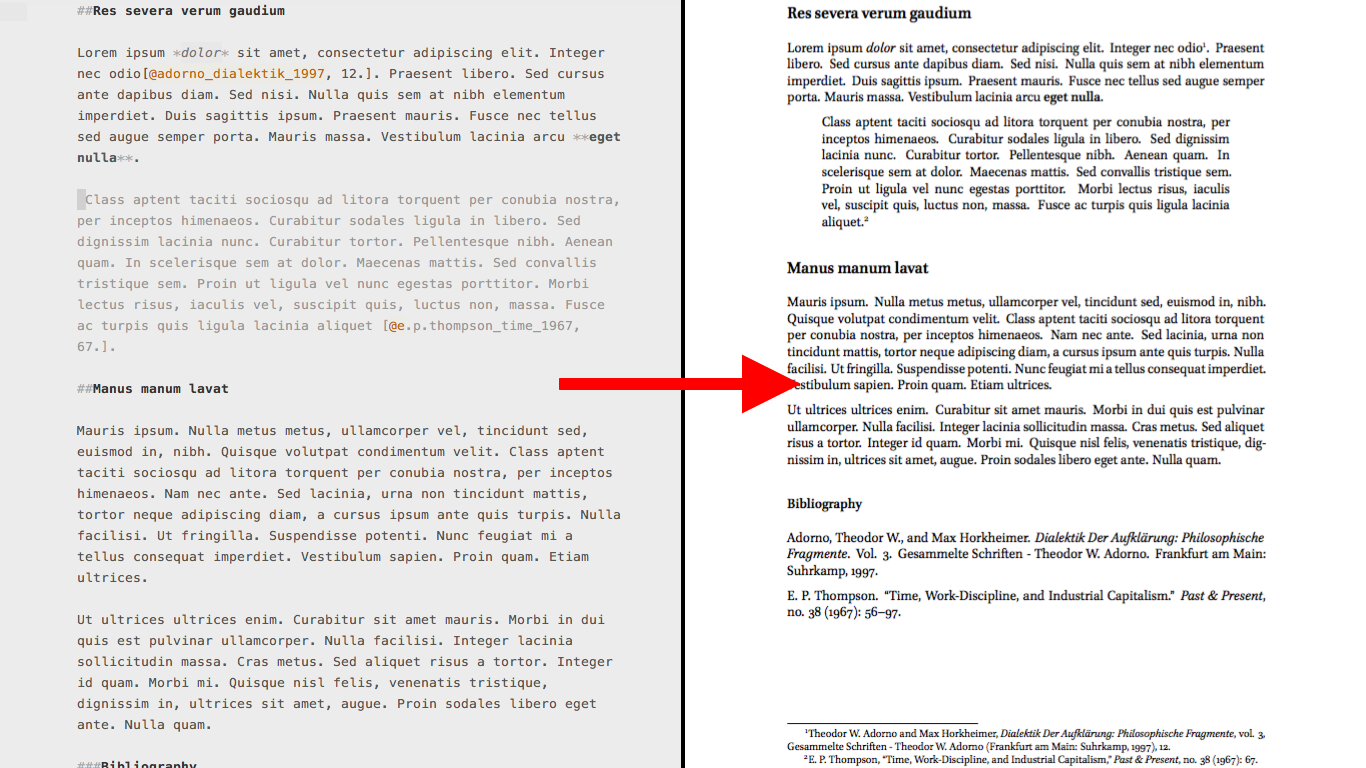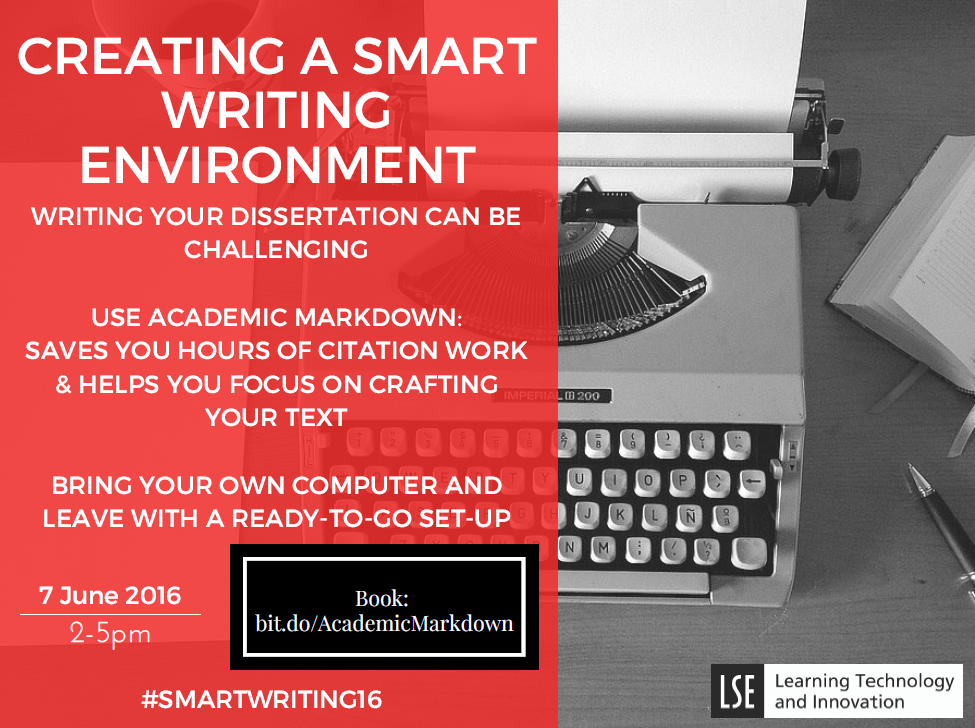Creating a Smart Writing Environment with Academic Markdown
In January, Tobias Pester, postgraduate students in the department of International History at the LSE, was awarded an LTI Grant for his project to “develop, document, and teach a Workshop for Sustainable Authorship for students of the LSE that familiarizes and equips them with the writing environment of Academic Markdown”. The workshop will take place on Tuesday, 7th June and a recording will be made available afterwards. Read about his experience of this handy tool.
 In the spring of 2015 I finished my first year of American grad school. Coming from the German university system I knew it was going to be a Protestant re-education camp in terms of work load and ethic. By the end of that spring I had to write three sizeable papers in short succession and ‘time is of the essence’ took on a new meaning. Lucky for me some of my friends had just started using this writing set-up that streamlines all the things that take no brain but lots of time: citations, the bibliography, and worrying about the different format of citations when in footnotes vs. when in the bibliography.
In the spring of 2015 I finished my first year of American grad school. Coming from the German university system I knew it was going to be a Protestant re-education camp in terms of work load and ethic. By the end of that spring I had to write three sizeable papers in short succession and ‘time is of the essence’ took on a new meaning. Lucky for me some of my friends had just started using this writing set-up that streamlines all the things that take no brain but lots of time: citations, the bibliography, and worrying about the different format of citations when in footnotes vs. when in the bibliography.
Enter Academic Markdown and Pandoc. So-called markup languages like LaTeX have long been used by authors in the sciences. They’re great to handle formulas, diagrams and other sciences-specific requirements. For humanist writers, however, the upside to learning a markup language had been comparatively small. All we really need are basic formatting options, block quotes, and citations.
That’s where Markdown comes in handy. It’s designed to satisfy those requirements and be easy to pick up at the same time. It only takes five minutes to learn how to mark a header or a footnote as such and the text remains visually intact and perfectly readable in its raw form. And because formatting, citation management, and bibliography are almost entirely automated it affords an utterly distraction-free work flow. I work on crafting my text and crafting my text only. The last line in my manuscript is the header ‘Bibliography’. When I’m done pouring my blood, sweat, and tears onto the screen, I run it through a simple program called Pandoc once and, voilà, I get a ready-made ´pdf´ or ´docx´ with citations and bibliography according to whichever citation style language I specified.

The text in Academic Markdown and after formatting
Using that particular set-up last spring I became a writing machine. And the many hours freed from formatting could go into refining my argument or polishing my prose. I am since doing all my writing this way, from response papers to my dissertation, from personal letters to invoices. American grad school, however, still kicked my ass.
To share the benefits of this work flow I am developing and teaching a class with the generous help of an LSE Learning Technology and Innovation Grant. The workshop will take place on Tuesday, 7th June, 2-5 p.m. in 32L.LG.18 alongside the Teaching and Learning Centre’s Dissertation Week. Spread the word and join us!
Hit me up on Twitter at @philomonk. I’d love to hear your thoughts! #SmartWriting16










